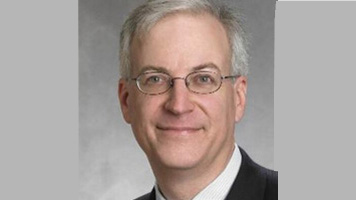Jessell | Winning Over DOJ On Duops Won’t Be Easy


Harry Jessell
Broadcasters are finally getting their day in court — two actually.
This Thursday and Friday, at a “workshop” in Washington, they get to make the case to the antitrust division of the Justice Department that TV stations compete not only with each other, but also with cable and digital media like Facebook and Google.
Right now, the antitrust lawyers don’t believe stations face real outside competition. They have convinced themselves that the top four stations — network affiliates — dwell in their own little world and that what they charge advertisers is unconstrained by all the other places businesses can spend their marketing dollars.
Consequentially, they have made it clear that they are going to block new affiliate duopolies, whether by ownership or through joint sales and shared services agreements.
Antitrust chief Makan Delrahim has been promising this workshop since last fall, and in doing so has spoken of it mostly in terms of how digital advertising may be affecting the local advertising market, but the workshop agenda, fortunately, also includes cable.
The DOJ has organized the workshop around four panels, two on Thursday afternoon and two on Friday morning. You can see the whole lineup here and register to attend by emailing to [email protected]. Seating is on a first-come, first-served basis.
The key session is on Friday morning: “Competition Dynamics in Advertising: Does Local Broadcast Compete with Cable Spot and Online Advertising?”
The moderator will be Lee Berger, one of the antitrust lawyers who has been giving broadcasters no quarter in merger reviews.
Representing broadcasters will be Tegna CEO Dave Lougee and NAB top lawyer Rick Kaplan. Representing the advertisers: Ty Ahmad-Taylor, business product marketing, Facebook, and Marcien Jenckes, president, advertising, Comcast Cable.
I have no doubt that Lougee and Kaplan will make strong, if not convincing, arguments that TV stations are knocking heads with digital and cable in their pursuit of ad revenue.
I’ll be more interested in seeing whether Ahmad-Taylor and Jenckes play into the antitrust division’s narrow view of the local market or whether they concede that they are competing for the same finite pool of dollars as broadcasters.
Two other broadcasters are schedule to speak. On Thursday, Gray Television Co-CEO Pat LaPlatney will appear on a panel about the “nuts and bolts of broadcast and cable.” As one of the industry’s leading consolidators, Gray has been pushing for the opportunity to pair affiliates and it feels wronged, having had to spin off a bunch of top-four duopolies to win Justice’s blessing for its merger with Raycom last year. It also partially blames Justice for the FCC’s inaction on its proposal to own two top fours in Sioux Falls, S.D.
With its strict and narrow view of the local market, DOJ is protecting advertisers and their agencies from being gouged by broadcasters, and they will have their say, too. Representing the buy side on Thursday will be Marc Pritchard, chief brand officer at Procter & Gamble, and Joshua Lowcock, an EVP at Universal McCann.
What’s lacking is a slot from somebody at Justice to explain its current policy, to lay out in clear terms why its model of the local broadcast marketplace is so constricted and to respond to broadcasters’ arguments.
But this is Justice’s show and it will be in listening mode. I suspect it’s going to be like attending oral arguments before an appeals court panel or the Supreme Court, where you will have to try to infer Justice’s thinking from the questions the moderators ask.
The other broadcaster is Sinclair CEO Chris Ripley, a somewhat surprising choice given the group’s contentious relationship with Justice when it was trying to win approval of the ill-fated merger with Tribune last year. But Ripley has been assigned to the final panel on the future of advertising and Sinclair has been at the forefront of broadcasting’s next-gen advertising efforts.
(The agenda has one oddity: Larry Solov, CEO of the conservative Breitbart News Network. Of all the ad-supported digital media in all of cyberspace, why would you select a relatively minor player like Breitbart that doesn’t even sell advertising locally?)
Rick Ducey, managing director of BIA Advertising Services, is not a broadcaster, but he will offer evidence on Thursday that will undergird their arguments.
Among the insights he will share are three about the Washington ad market this year:
- Nearly $300 million will be spent by auto dealers and manufacturers.
- Of the $300 million, more than 40% will go to digital media.
- Google alone will capture more of the money than all the TV stations combined.
It’s nice that Justice is giving broadcasters this opportunity to air their grievances, but I’m doubtful it will trigger a change in policy, at least not in the short term.
Not on this week’s agenda is Owen Kendler, the Delrahim lieutenant who oversees media. However, he appeared on a NAB Show panel earlier this month.
From listening to him there, I would say that Justice’s attitudes about the local advertising marketplace are well entrenched and that the burden of proof this week will fall heavily on the broadcasters.
Kendler spoke mostly in generalities, but what came through in his comments is that Justice has heard it all already — from advertisers and their agencies, the non-broadcast media and the broadcasters themselves — in the course of reviewing broadcast mergers like Sinclair-Tribune and Gray-Raycom. He seemed confident, smug almost, that Justice has it right.
More disturbing, Kendler seemed not to care how Justice’s policy affect the media it is, in effect, regulating. In reviewing a merger, he said, its only concern is for the buyers of the product — in this case the advertisers. “Do they feel they have no outside alternative to defeat a price rise.”
I wasn’t sure I fully understood what he was saying until another panelist spoke up. He was David Kully. He is now in private at Holland & Knight, but he used to be an antitrust litigator at Justice.
Yes, he confirmed, the financial health of the merging media companies is not a factor in Justice’s antitrust calculations. Under its “prevailing approach,” he said, flat or declining revenue by the companies would not be “particularly relevant, even in dying industries.”
While at Justice in 2016, Kully said Justice sued Tribune’s Los Angeles Times to block it from buying the Orange County Register out of bankruptcy, forcing the paper’s sale to a weaker publisher, Digital First.
I was stunned by the admission. And I was not the only one. So was the only broadcaster on the panel, Beth Neuhoff, CEO of Neuhoff Communications, a radio group facing the same antitrust issues as its TV counterparts.
“But that does not make common sense,” she said in response to Kully, prompting applause from the audience. She said she doesn’t understand how it “doesn’t matter” that radio is “market constrained” especially when it is burdened with public interest obligations.
This is just some of what Lougee, Ripley, LaPlatney and Kaplan will be dealing with this week.
To be blocked from operating top-four duopolies is not in the long-term best interest of the industry.
At some point, the net retrans revenue that is now driving industry growth is going to level off as a result of the stiffening of MVPDs in retrans negotiations and the networks’ demand for ever more of their affiliates’ retrans dollars. When that happens, the top line flat lines and TV broadcasting starts to look like radio broadcasting.
Station groups are going to need the cost savings and other synergies that come from operating two affiliates in a market to preserve their margins.
That broadcasting competes with cable and digital and needs antitrust relief is not an argument that broadcasters have to win this week, but it is one that they will have to win soon.
Harry A. Jessell is editor of TVNewsCheck. He can be contacted at 973-701-1067 or here.


































Comments (0)